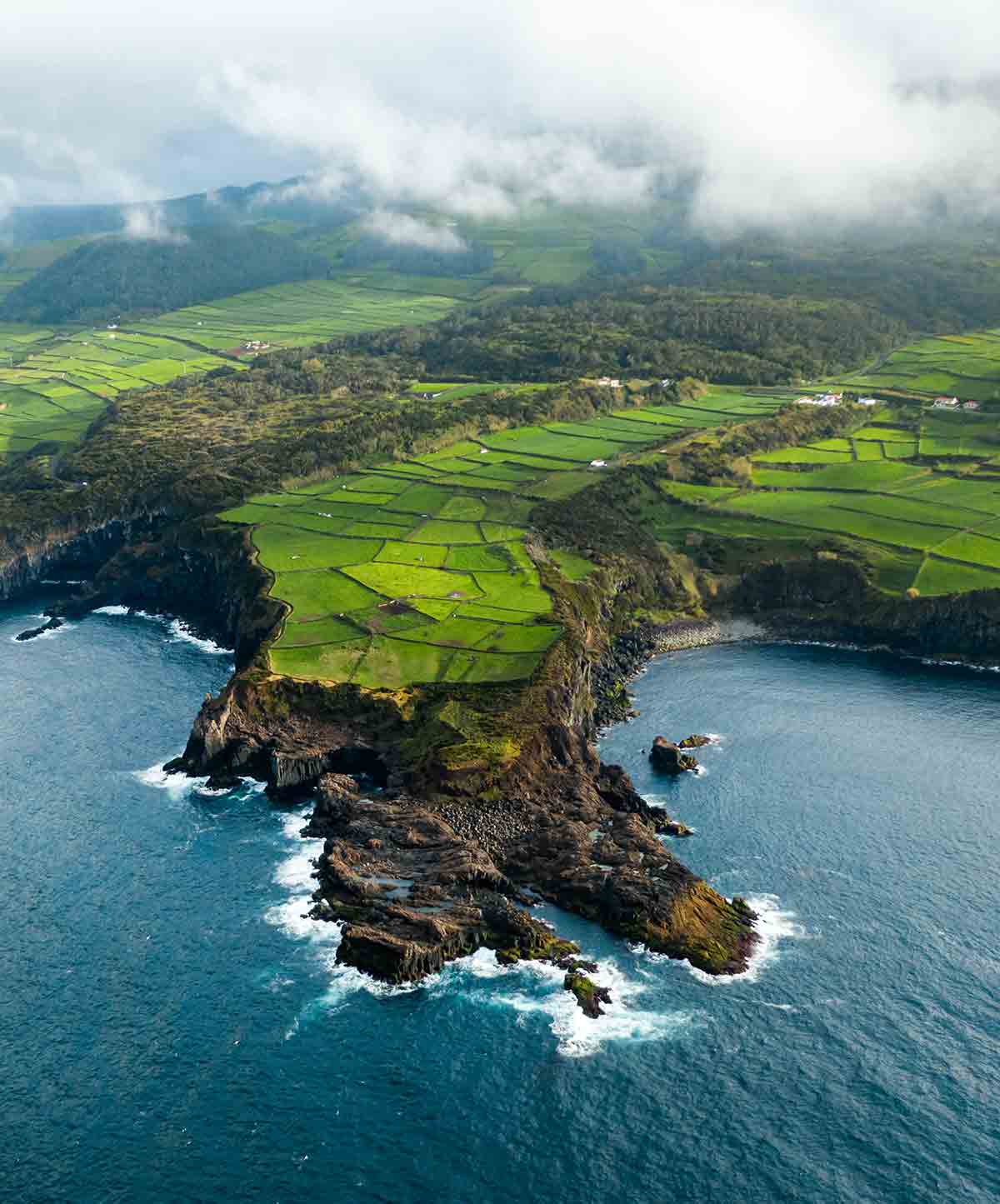
Most people, regardless of what they think, know surprisingly little about my family’s homeland. And even less about Azorean food. And for good reason. The Portuguese islands—São Miguel, Faial, São Jorge and six others—are strewn some 1,000 miles off the coast of Portugal and are happily marooned in the middle of the Atlantic. Unfortunately, so, too is our distinctive cuisine.
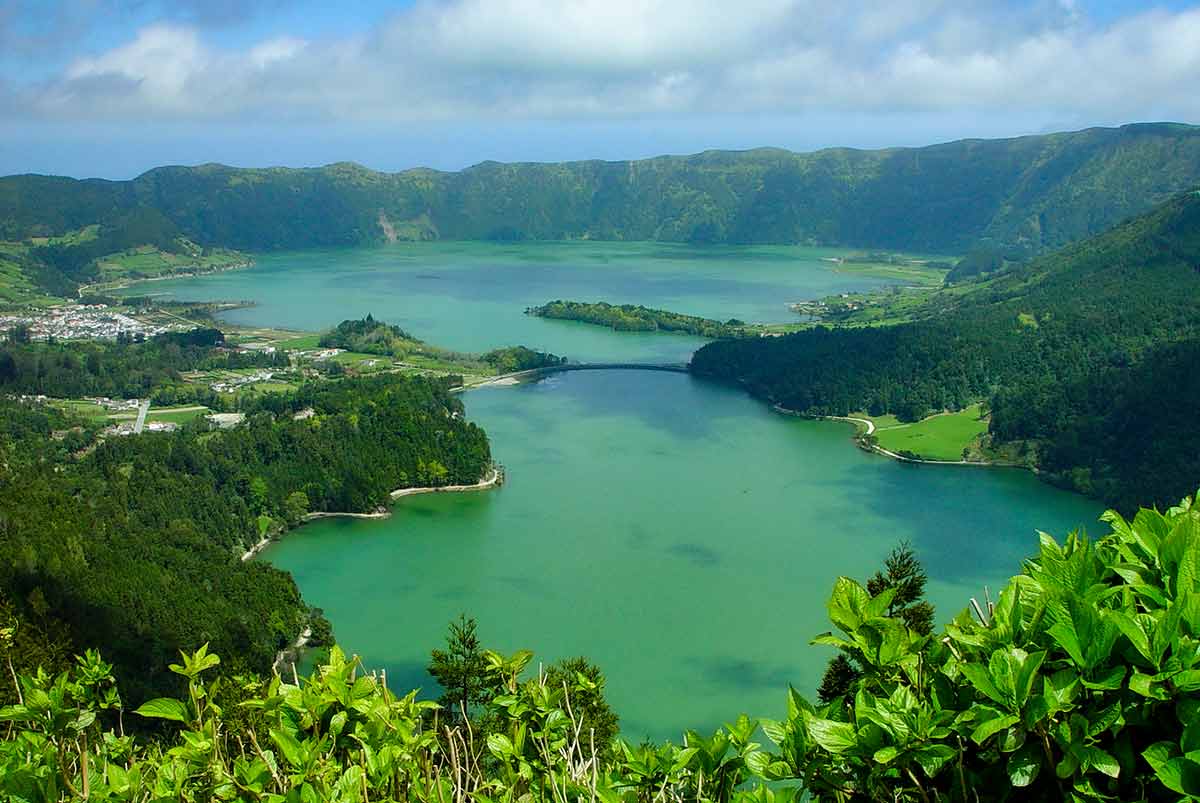
What is Azorean cooking
Geographic isolation is only one conspirator contributing to the invisibility of Azorean food. Like most peasant cuisines, Azorean cooking is home-based and frugal. Economics prevent most families from frequenting restaurants.
My ancestors were so poor that açordas—brothy soups brimming with chunks of crusty leftover homemade bread—were sometimes all there was to fill bellies.
Consequently, owning a café or pastelarias (pastry shop) held little promise. Unlike Chinese and Italian immigrants, Azoreans who arrived in the United States during the great waves of immigration in the early part of the 20th century rarely opened eating establishments. In turn, Azorean food remained largely undiscovered by Americans.
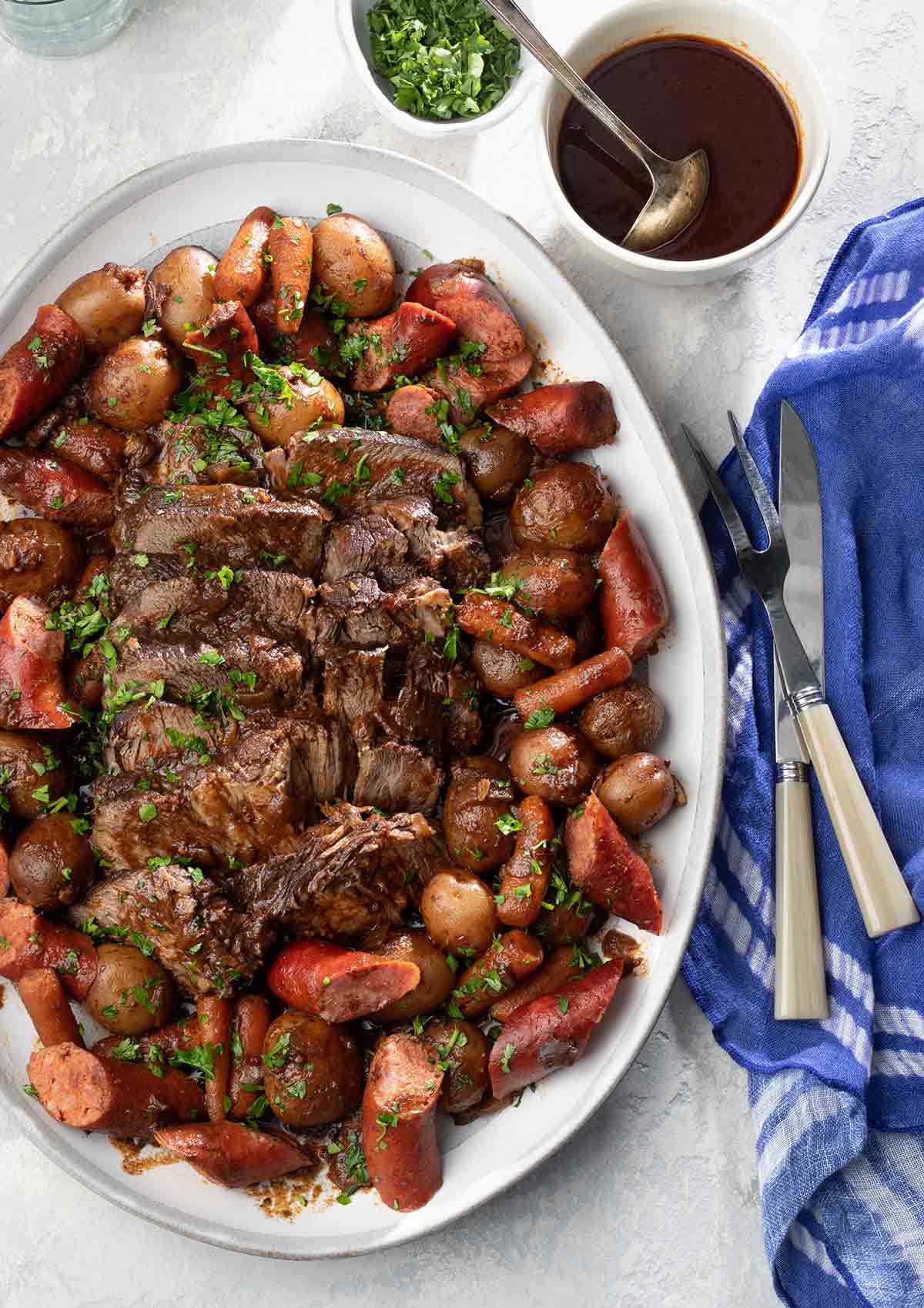
Mama Leite’s Carne Assada
Those mothers and grandmothers who wanted to formally share their cooking legacy were thwarted by illiteracy because in the Old Country most of them weren’t required to attend school. Without any written recipes, many family favorites disappeared when the cooks passed away.
Despite such obstacles, Azorean food has managed to thrive—and even resist being overtaken by the trendy Mediterranean-based cuisine of mainland Portugal.
Influences
“Our food is more authentic Portuguese because we have fewer Spanish influences,” says Ana Taveira, a well-known cook on the island of São Miguel. “We don’t use much cilantro, curry, or cinnamon. We’re more heavy-handed with other spices, especially the hot ones.” She adds proudly, “Ours is a simple, hearty food.”
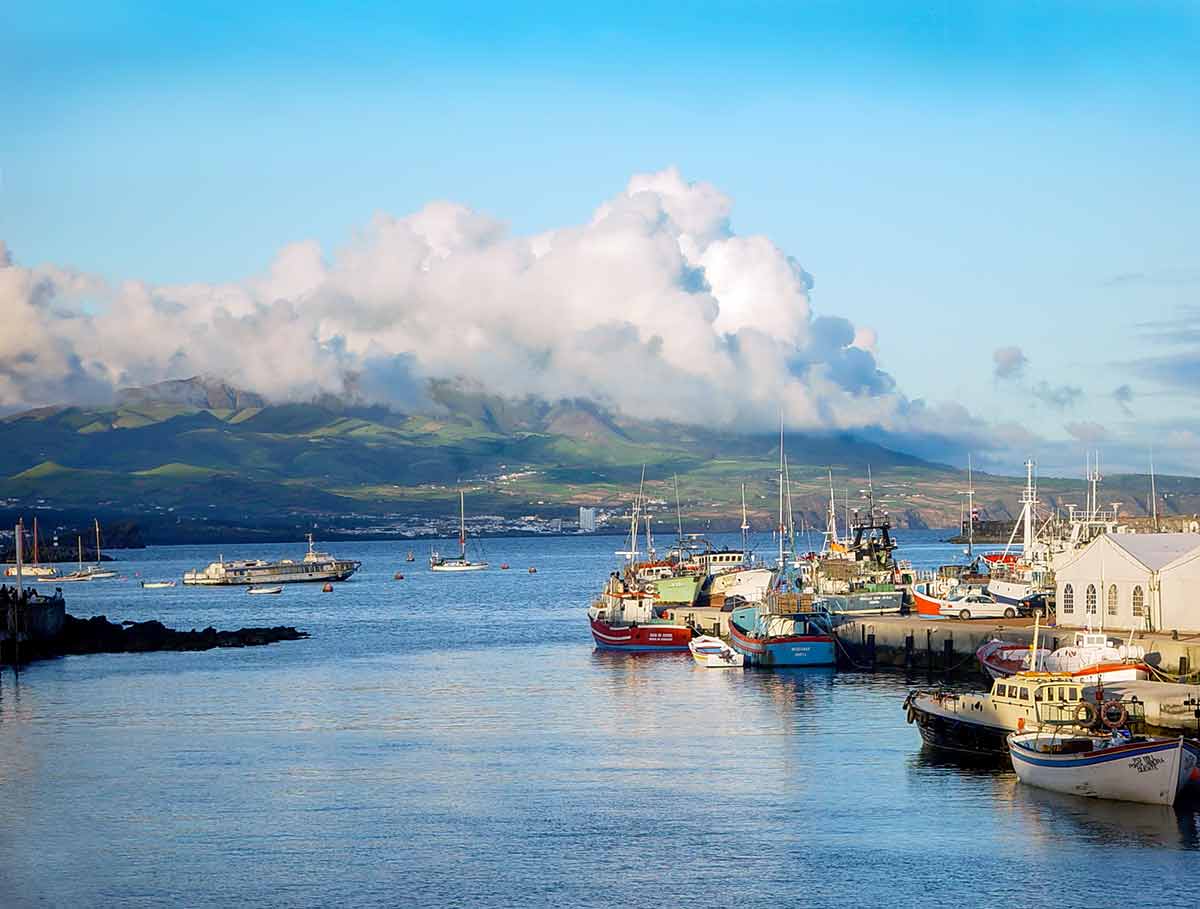
Ponta Delgada harbor
Food differences among the islands
Given that the islands are so tiny, the archipelago’s foods are remarkably regionalized, differing by island, town, and even vizinhança, or neighborhood. According to Deolinda Avila, author of the self-published “Foods of the Azores Islands,” São Miguel and some towns on Pico lead the way in their use of hot peppers.
Manuel Azevedo, a São Jorge native who owns LaSalette Restaurant in Sonoma, says, “Polvo [octopus] wasn’t as popular in my family or on my island as it was in other places. We liked lamprey and limpets more.” To further compound our rich gastronomic diversity, some islands embrace spices such as cumin, allspice, and cloves while others dismiss them entirely.
Nowhere is Azorean individuality seen more than in sopa de couves, the islands’ version of Portugal’s unofficial national dish, caldo verde.
“Sopa de couves is made differently in the Azores than on the mainland,” explains Avila. “On Faial we use more potatoes and don’t mash them [to make a thickened base]. We also don’t cut the greens into thin strips. It’s a more country dish the way we make it.”
Variations include the addition of red beans, ham hocks or beef shanks, and a sizable portion of chouriço—not the miserly single slice or two found in the mainland version and many chef-ified versions.
Azoreans can’t even agree on what key ingredient makes the best sopa de couves. Faial cooks prefer collard greens because they like the tender texture. But don’t dare tell that to cooks from São Miguel. To them, only the ruggedness of kale will do.
Salt cod | bacalhau
Yet wherever they live in the islands, cooks concede one point: bacalhau (salt cod) and porco (pork) are essential.
Cod was an obvious resource for seafaring islanders.
“Fishing came naturally to us,” says João Encarnação, a native mainlander and once the chef de cuisine to the Portuguese ambassador in New York City.
“But it was the salting of the cod for the long trip home from the North Atlantic that made it a staple of Portuguese life. Suddenly, an affordable food could be stored indefinitely.”
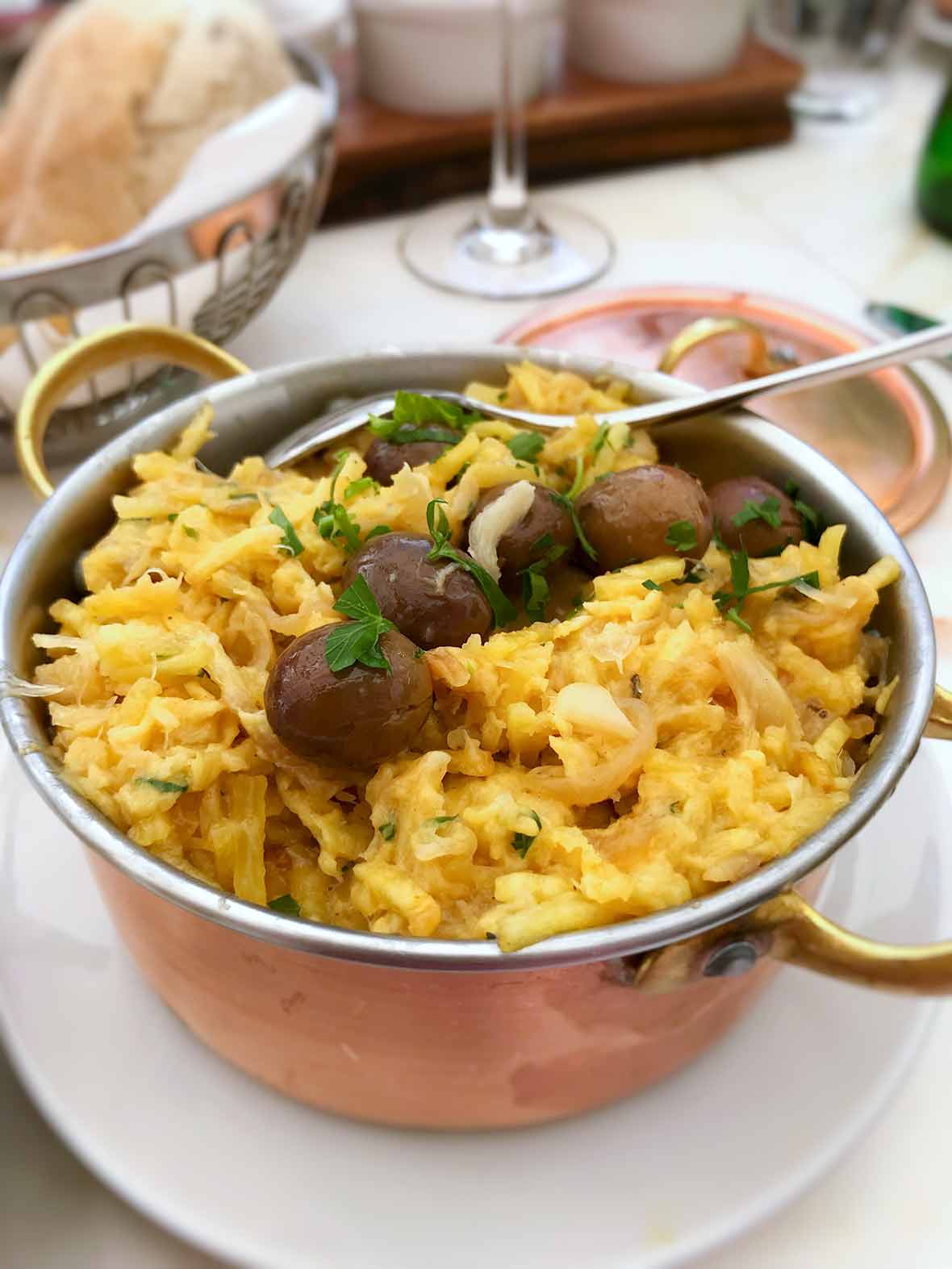
Bacalhau a Brás–scrambled eggs, salt cod, potatoes, onions, and olives
Salt cod plays such an important role in the lives of all Portuguese that it’s said we have 365 recipes for bacalhau—one for each day of the year.
Pork
On the other hand, pork may seem like an unusual staple on sleepy volcanic islands sequestered away at sea. To most Azoreans, cattle were more desirable for its dairy than for its beef. So milk and cheese, which are made into a myriad of delicacies, have served as an unending source of food and income. Pork, quite literally “the other meat,” rose to preeminence.
Pork is so highly prized that every year around Christmas families revel in a two- to three-day celebration called a matança de porco.
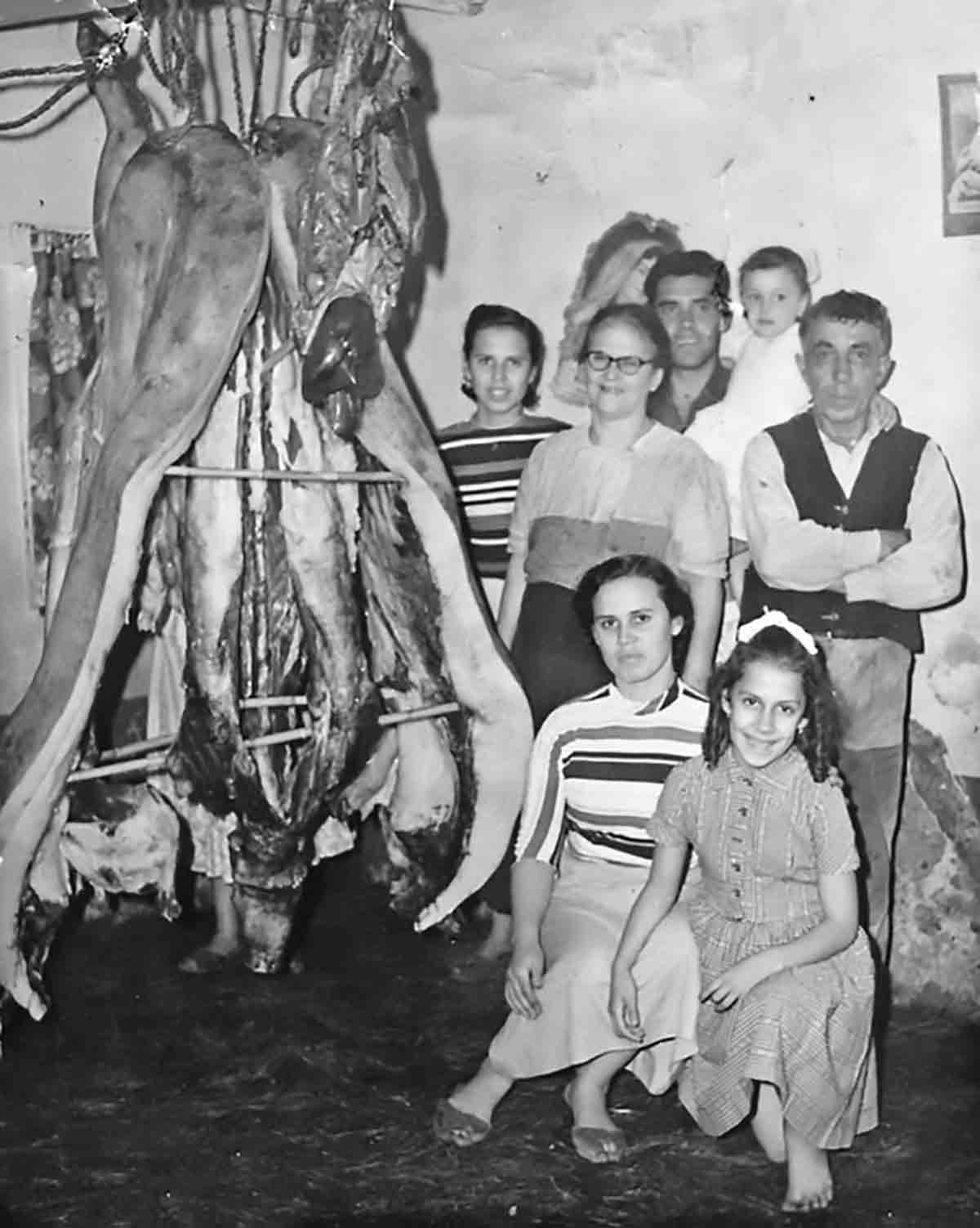
On the first day, the family pig is slaughtered and cleaned, then hung from the ceiling of the home for viewing. That night, friends and family come to see it as what Avila calls “proof of [the family’s] accomplishments.” A simple yet plentiful spread of food and drink is accompanied by joyous singing and dancing.
The following days are devoted to butchering the pig to make the famous linguiça and chouriço sausages, and to prepare cuts for winter meals. As Azorean frugality prescribes, no part of the pig is wasted. Even the organ meats are pressed into service in stews, cozidos (boiled dinner), and soups.
Desserts
Cod and pork may be characteristic of our cuisine, but what really defines it are the desserts—eggy and toothachingly sweet. The Moors contributed this taste for rich, sweet, eggy desserts and we quickly found inventive ways with the whole egg, the white as well as the yolk.

Pastéis (queijadas) de coco | Coconut pastries
While the Moors may have introduced eggy sweets, the addiction to these treats can be blamed squarely on the islands’ nuns. To earn money for their convents, the holy sisters of the 17th and 18th centuries spent their days behind cloistered walls perfecting such whimsically christened delights as olhos de sogra (mother-in-law’s eyes), suspiros (sighs), and barrigas de freiras (nuns’ bellies).
In the end, every cuisine is a product of its physical and cultural environment. Part volcanic soil and salt air, part peasant ingenuity and thrift, the hearty fare of the Azores doesn’t dazzle, but instead comforts.
Some cooks believe it helps assuage the powerful saudade, or longing to belong, every Portuguese person is said to feel—regardless of which secluded, beautiful corner of Atlantis he lives on.













Hi David. We found your wonderful website while doing research for next winter’s stay in Sao Miguel, Ponta Delgada. We’re seeking tips on bakeries, churrasqueirias, eating places, etc., walking distance from our rental apartment, which is right downtown near the marina. We’ll be posting a new travelogue on TheTravelzine.
Don and Linda, I look forward to your travelogue. Please keep posted!
Hi, simply Maria. My book is titled “The New Portuguese Table.” It’s all authentic, but a goodly portion of it is contemporary dishes I found in homes, restaurants, hotels, and such in Portugal today. So while you do have plenty of classics, you also have new dishes. I wouldn’t say Americanized, but contemporized by cooks whom I met while living in Portugal.
Hello. I too am fascinated by this wonderful find! I was born in Sao Miguel and we came to the west coast of Canada, where we live in a small community that began in the mid 50’s. Our town was flocked by Azorean men looking for stable, well paying jobs, and now 60 years later, even though all the old people are gone, there is still a major descendant influence of Azoreans. I will always be proud of my heritage, and as you can tell by my last name i will always be an Azorean.
Ed, thanks for writing. Your family’s story is very much like mine. We settled on the East Coast, in Massachusetts, where a lot of Azorean men worked in the fishing industry and Azorean women worked in the fabric mills.
I am also of Azores from St Miguel. My maiden name was Souza from my grandfather. My grandmother was Farias, and my mother’s family from the same area was Almeida.
I grew up on all that food, and it is hard to find the original recipes. My grandmother used to make this pork butt cut into cubes and it was crispy it began with a T. Does anyone know what this dish is. Would love to make it. Thanks.
My family settled in Fall River, Massachusetts.
Joan, I think you might be talking about torresmos. I have my family’s version (which I love) in my cookbook. But go to a bookstore and check it out first, because this is one of those recipes is made a million different ways, and if it’s not what someone remembers, it can be disappointing.